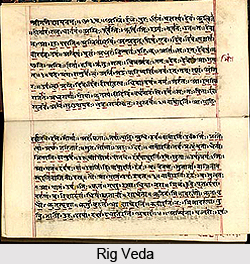 Origin of Philosophy in India can be attributed to the ancient religious texts that introduced ideas, concepts and entities. The later poets were dissatisfied with the older explanations. The problems could not be solved in a rational manner. The main concerns were the basis of many religions, philosophical systems since the beginning of time. However several hymns of the tenth book of the Rig Veda deal with the creation or evolution of the cosmos. That`s how the theories of a Golden Embryo out of whom the universe emanated, Visvakarman, a feminine entity called voice and time had emerged.
Origin of Philosophy in India can be attributed to the ancient religious texts that introduced ideas, concepts and entities. The later poets were dissatisfied with the older explanations. The problems could not be solved in a rational manner. The main concerns were the basis of many religions, philosophical systems since the beginning of time. However several hymns of the tenth book of the Rig Veda deal with the creation or evolution of the cosmos. That`s how the theories of a Golden Embryo out of whom the universe emanated, Visvakarman, a feminine entity called voice and time had emerged.
The first two divinities were merged into a new god called Prajapati, the Lord of Progeny. He is conceived of as the father of the gods and of all things. Among these Rig Veda hymns two of them are important as it lead to the development of the thought of time. One of the hymns is prominent for its cosmic vision, its imaginative picture of a universe evolving out of a primal condition. The Aryans along with following a religion succeeded in making the four varnas a social norm. Varna also means colour and skin pigmentation has played a part in the evolution of the system.
The main schools of Indian philosophy were solemnized between 1000 BC to the early centuries AD. Subsequent centuries produced commentaries and reformulations that continued upto late 20th century by some philosophical thinkers. During the formative years competition and integration between the various schools of philosophy was intense from 800 BC to 200 AD.
This article is a stub. You can enrich by adding more information to it. Send your Write Up to content@indianetzone.com.



















